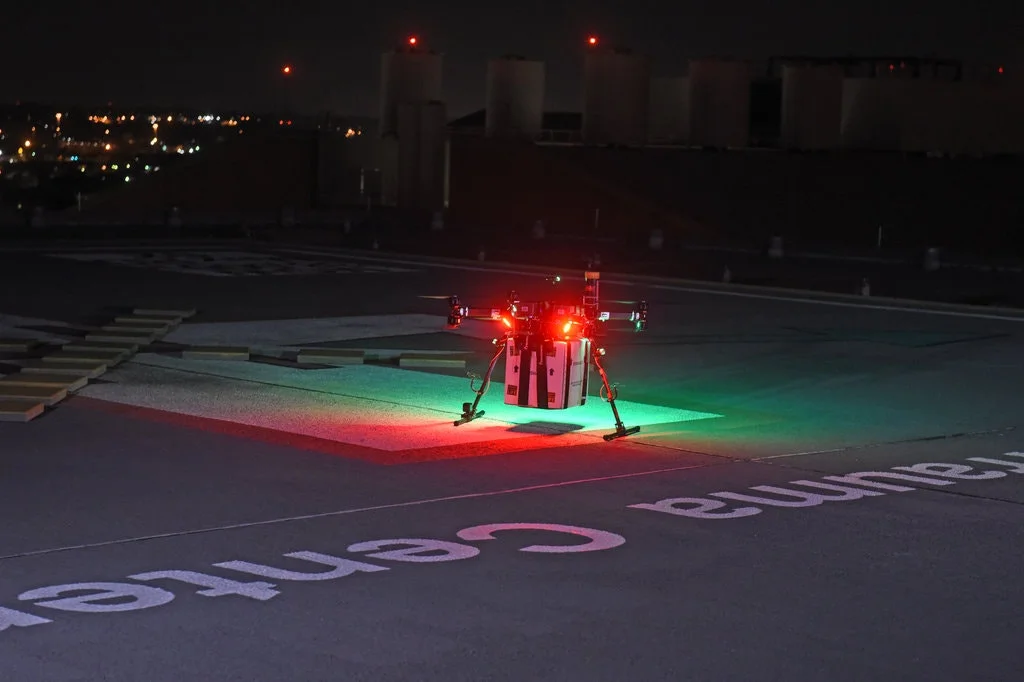'Uber for Organs'
POSTED ON APRIL 30, 2019, BY KAREN ZRAICK
A custom-made drone delivered a kidney this month to a Maryland woman who had waited eight years for a lifesaving transplant. It was only a short test flight — less than three miles in total. The team’s leader, Dr. Joseph R. Scalea, an assistant professor of surgery at the University of Maryland School of Medicine, said he pursued the project after constant frustration over organs taking too long to reach his patients. He recalled one case when a kidney from Alabama took 29 hours to reach his hospital. “Had I put that in at nine hours, the patient would probably have another several years of life,” Dr. Scalea said Tuesday. “Why can’t we get that right?” The woman who received the kidney, Trina Glispy, a 44-year-old nursing assistant from Baltimore, said she had begun to lose hope before she got a call on April 18, when she learned she had matched with a donor. In 2017, the agency said, more than 6,500 candidates died while on the wait list, or within 30 days of leaving the list for personal or medical reasons without receiving a transplant. That makes the notion of an organ becoming less healthy during transit all the more galling, Dr. Scalea said. The drone used in this month’s test had backup propellers and motors, dual batteries and a parachute recovery system, to guard against catastrophe if one component encountered a problem 400 feet in the air. Two pilots on the ground monitored it using a wireless network, and were prepared to override the automated flight plan in case of emergency. The drone also had built-in devices to measure temperature, barometric pressure and vibrations, among other indicators. Dr. Scalea called the flight “proof of concept that this broken system can be innovated.” He added that current organ transport is “data-blind,” meaning doctors often cannot see an organ’s progress in transit. The drone allows timely updates on its progress, the way you might track an approaching taxi on your phone. “We can monitor in real time,” Dr. Scalea said. “It’s like Uber for organs.” The drone flew over 700 hours in 44 test flights before this journey, he added. The exercise allowed the team to overcome logistical and regulatory hurdles involved in transporting a viable organ, and it will now focus on flying “farther and faster,” he said. Dr. Christopher Marsh, the director of the transplant program at Scripps Green Hospital in La Jolla, Calif., and a member of the American Society of Transplantation, said it was too early to pass judgment on the reliability of delivering organs by drone. But surgeons would be keeping a close eye on developments, he said. Dr. Marsh, who was not affiliated with the test, noted that the technology could be helpful to avoid traffic in big cities. “We’re entering a new world,” he said. “Things change, so we have to be open to that.”
Copyright © 2019 EcoChi, LLC. All rights reserved.




